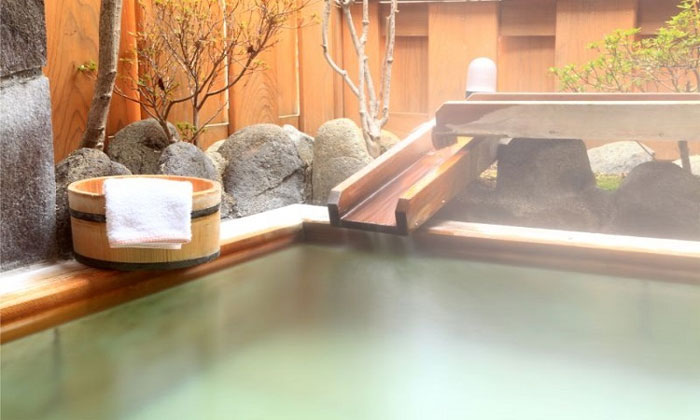Evidence shows that the nCoV virus is not affected by temperature
A small cluster of nCoV infections in a public bath showed that nCoV, the virus causing Covid-19, could still be transmitted in a hot, humid environment.
To determine the effect of temperature on nCoV, the team led by Dr. Chao Luo at Nanning Medical University tracked 9 men aged 24-50 who had Covid-19 when they went to public baths in Huai'an City, Jiangsu Province, China, about 700 km northeast of Wuhan. They collected samples from cotton swab throat when patients treated in the hospital from January 25 to 10/2.

One patient spread nCoV to another 8 in public baths.(Photo: Twitter).
Eight people once visited or worked in a public bath with nCoV infection just days after an infected man came. The 300-square-meter center has a swimming pool, shower and sauna. The areas inside the center have temperatures between 25 and 41 degrees C and humidity of about 60%.
Data from the hospital revealed the super-infectious man arrived in Wuhan before he went to a public bath on January 18. This person had a fever the next day and was diagnosed with Covid-19 within a week. Another seven patients also took a shower, used a sauna and swam in the same area on January 18 and began to show symptoms such as fever, cough, headache, chest tightness within 6-9 days later. The ninth person was an employee at the bathroom and became ill on January 30, 11 days after the first patient arrived.
"Previous research has shown that the virus infection rate decreases significantly in high temperature and humidity environments . However, based on the results of this study, the infectious ability of nCoV shows no signs of weakening. in hot and humid conditions , " the expert team reported on March 30 in the journal JAMA.
nCoV is closely related to the virus causing severe acute respiratory distress syndrome (SARS) and Middle East respiratory syndrome (MERS) despite having a higher rate of infection than other corona virus strains. This virus is spread by droplets containing a virus, incubation period of about 3 - 7 days. However, some people may not show symptoms for 2 weeks.
According to the US Centers for Disease Control and Prevention, corona virus lasts shorter time under high temperature and humidity than cold and dry environment. However, at present, researchers do not have direct data showing that the virus weakens with temperature.
The study has some limitations such as mostly based on observed data and may result in a different pattern to the wider sample. But they say the findings are still worth considering about epidemiology and public health.
- Research: Corona virus may have been transmitted to humans for decades
- Cho Ray doctor showed how to make a glass sheet to prevent splashes
- Why are elderly people so difficult to resist Covid-19?
- If you want to know if you have Covid-19 soon, you can wear this ring
- Developed low dose vaccine to prevent nCoV
- How does the immune system fight nCoV?
- Why is the nCoV virus less likely to affect children?
- Vietnam has successfully cultivated nCoV virus
- The patient in Vinh Phuc who is infected with corona virus is the 16th case in Vietnam
- Case positive for the 13th nCoV virus in Vietnam
- The Ministry's Ministry of Health's free hotline for prevention and control of nCoV
- Ho Chi Minh City discovered 2 Chinese people infected with corona virus
- Notes on prevention and protection of Corona virus
- Detecting nCoV virus in the external environment
- Ways to prevent nCoV virus for office workers
- Detection of 8th case of corona virus in Vietnam
 Chinese doctors have created medical masks that cover only the nose for convenience of eating and drinking
Chinese doctors have created medical masks that cover only the nose for convenience of eating and drinking Scientists have found a way to help you regrow new teeth after only 2 months
Scientists have found a way to help you regrow new teeth after only 2 months Do non-stick pans cause cancer? What alternatives are there?
Do non-stick pans cause cancer? What alternatives are there? Blisters around the body: Causes, symptoms and treatment
Blisters around the body: Causes, symptoms and treatment Why can't the flu virus be eradicated?
Why can't the flu virus be eradicated?  Garlic does not kill coronavirus
Garlic does not kill coronavirus  Does the corona virus stick to clothes, shoes, hair, papers?
Does the corona virus stick to clothes, shoes, hair, papers?  Top 10 things doctors recommend for living with SARS-CoV-2
Top 10 things doctors recommend for living with SARS-CoV-2  Vaccines to prevent future strains of Corona virus
Vaccines to prevent future strains of Corona virus  What you need to know about the virus that has a 70% mortality rate in India
What you need to know about the virus that has a 70% mortality rate in India 